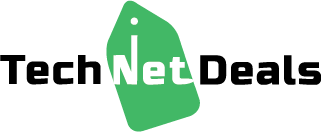
Django is one of the best Python frameworks for building web applications.
It is a high-level open-source web framework that allows developers to quickly and efficiently build scalable, robust, and efficient web applications.
It is based on Python’s philosophy of prioritizing readability and simplicity, while providing a powerful, out-of-the-box toolkit for creating scalable web applications.
Why Use Django For Web Development?

Companies looking to hire Python Developers often ask for Django talents, as Django is one of the most widely used Python frameworks on the market today.
If you want to build your next web application on a Python framework, consider Django a viable and beneficial option.
Here are the top reasons for choosing Django as your Python development framework –
1. Rapid Development
Django provides an efficient and healthy environment for web development, following a principle known as DRY, or Don’t Repeat Yourself. This promotes some of the best practices in code reusability and app efficiency.
It has various built-in functionalities, including handling, authentication, and properly designing the admin interface. This helps reduce the time needed to develop a complex feature from scratch.
Moreover, the ready-to-use components allow developers to focus on business logic and not just repetitive coding. It lets them build feature-rich projects in less time.
2. Security Features
The Django Python Framework was designed to incorporate robust security measures. It follows certain coding practices by default.
Moreover, it provides provisions for protection against common vulnerabilities, such as Cross-Site Scripting (XSS) and Cross-Site Request Forgery (CSRF) attacks.
Django also has the necessary measures to prevent SQL injection attacks, secure authentication, and implement authorization mechanisms, including user and password management. Hence, you can build highly secure web apps using Django.
3. Scalability
Suppose you have a small-scale project and anticipate growth in the near or distant future.
In that case, Django is the right choice, as it provides sufficient scalability by utilizing various tools and technologies and adhering to standard coding best practices.
You can optimize your app’s performance, caching, and query optimization, and easily integrate Django with other popular technologies.
4. Documentation and Support
Django follows proper documentation, providing enough resources for developers to understand the framework comprehensively.
It also has clear guidelines, real-life examples, and best practices for building, deploying, and designing Django applications.
Moreover, the community is very supportive and provides ongoing help through forums, mailing lists, and other such gatherings.
5. Versatility
Django is a highly versatile framework that supports the integration of various popular databases, such as Oracle, SQLite, PostgreSQL, and MySQL. It also supports various deployment modules, including traditional and cloud.
6. URL Routing
Django provides a URL Routing feature that offers a robust and elegant way to map URLs to specific views or functions within the code.
This helps ease the management and organization of all URLs in the application, making it easier to maintain and manage.
7. Middleware Support:
Django has a middleware architecture that allows developers to process requests and responses globally across the entire app.
These middleware components can be used to modify HTTP headers, logs, and authentication. Developers can then add custom functions to the request/response cycle.
8. Testing Frameworks
Django provides a comprehensive testing setup that enables developers to write various tests and thoroughly test their Django app. For testing web applications, there is support for unit, integration, and functional tests.
You can always add another type of testing via extensions and rich Python libraries. This improves the application’s overall reliability, security, and quality.
9. SEO-Friendliness
Django is one of the most SEO-friendly frameworks, offering user-friendly URLs and features such as sitemaps and meta tags.
This enables companies to make necessary website adjustments and optimizations, ensuring they remain competitive and effective.
Moreover, it increases their chances of ranking higher on Google’s SERP and getting their URLs indexed and crawled, ultimately improving visibility and potential traffic.
10. In-built Form Handling
Django simplifies form handling with its built-in robust form API. It can help developers define, validate, and process forms, significantly reducing boilerplate code.
11. Scalable Architecture
Django’s properly scalable architecture promotes code reusability and a modular development approach.
It enhances the code organization, management, and maintenance, and gives the team more control and freedom over managing individual components without getting entangled in complex dependencies.
12. Templating Engine
Django has a powerful templating engine allows developers to apply Separation of Concerns through a presentational layer and application logic.
This helps improve code readability, maintainability, and reusability, making it easier to modify your application’s user interface (UI).
13. Extensible and Pluggable
Django is pluggable and extensible with third-party plugins and extensions. This allows developers to select and customize features, design choices, performance optimizations, and other key aspects of web app development.
It gives them more control over the customization aspect. You can integrate Google Maps APIs, secure payment gateways, and plugins to replace them with your current needs.
14. It has a professional, Supporting Community
Another advantage of using a Django framework is its huge professional community. Finding developers who are well-versed with Django and have prior experience coding with it is not challenging.
Moreover, various specific companies offer specialized services in this framework. This is good evidence of the popularity of the framework, but this also means:
- You will find help or go in the right direction to work with harder programming cases.
- The community is swift and responds to bugs immediately and fixes them.
- Moreover, this is an open-source framework, and it is constantly improving.
Types Of Websites Built Using The Django Framework

Django is a versatile programming language used to build a wide range of web applications.
Here are some of the most common types of websites where Django is the ideal choice for development:
1. CMS
Django provides a solid foundation for building content management system (CMS) solutions and platforms. It features user authentication, authorization, content publishing, version control, and a rich and intuitive admin panel.
2. Ecommerce Websites
Django is highly extensible, flexible, and scalable, making it an ideal choice for building e-commerce websites. It allows you to easily set up product catalogs, payment gateways, shopping carts, order management, and other essential features required in a well-built e-commerce storefront.
3. Social Networking Platforms
Since Django is highly scalable, you can start your new social media startup on this framework and keep using it as you scale your platform and gain more visitors, traffic, and interactions.
By hiring dedicated developers with experience building social media platforms on Django, you can create a robust, intuitive, and highly scalable social media project with reliable uptime and performance.
4. Real-Estate Websites
Django can also build real estate websites with property listings, agent profiles, search options, advanced filters, and contact forms. Using Django, you can easily manage property details, vendor information, and location-based searches.
5. Educational Platforms
Django is also a viable option for creating educational platforms for institutions, parents, students, or any other stakeholder, featuring user registration, course management, assessment, progress tracking, discussion forums, and other essential and relevant features.
6. Community Platforms
Suppose you have a topic or product for which you want to create a community platform. In that case, choosing Django can serve you well.
Django is a preferred framework for building intuitive community forums where users can share knowledge, ask questions, answer queries, find topics by category, and perform all other necessary activities within a forum community.
7. Booking And Reservation Systems
Utilize Django to develop booking and reservation systems for diverse industries, including movie theaters and entertainment, hotels and restaurants, event venues, transportation services, and more.
With Django, you can easily integrate features like availability calendars, payment processing, booking management, and more.
How Popular Is Django?

There is no particular way of figuring out the popularity of a server-side framework, even though some mechanisms can help you count the number of GitHub projects from each platform.
You should ask a better question: Is Django popular enough to ignore the problems the unpopular platforms are bringing? Is it still evolving? Can it help when required? Will you get paid if you learn Django?
The number of high-profile sites using Django, the number of people contributing to its codebase, and the number of people providing paid and free support determine whether Django is a popular framework.
Some high-profile sites using Django include National Geographic, Pinterest, Instagram, Mozilla, OpenStack, Open Knowledge Foundation, Disqus, and the Knight Foundation.
Will You Be Using Django?
There are various advantages to web development with Django and the Python framework, and now you know them.
You can start with a small and simple project, and then, when you learn about it further, you can use it for other projects, ensuring it has quality and security.
Moreover, you can use Python, one of the best programming languages. You can use it to save money or to test an idea if you think the project is not worth investing in.
This could be the best fit for your next business idea, regardless of what software project you are using. If you think this will help, you can take full advantage of it.
Read Also:






